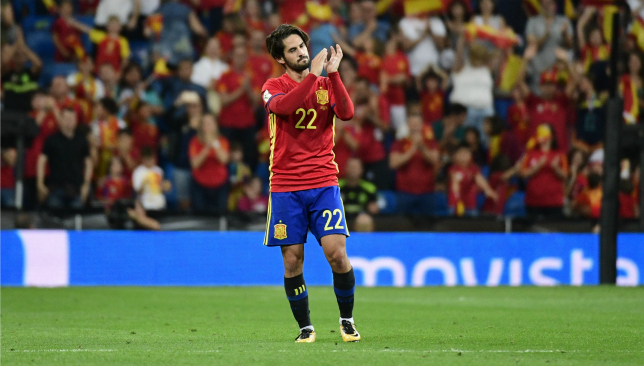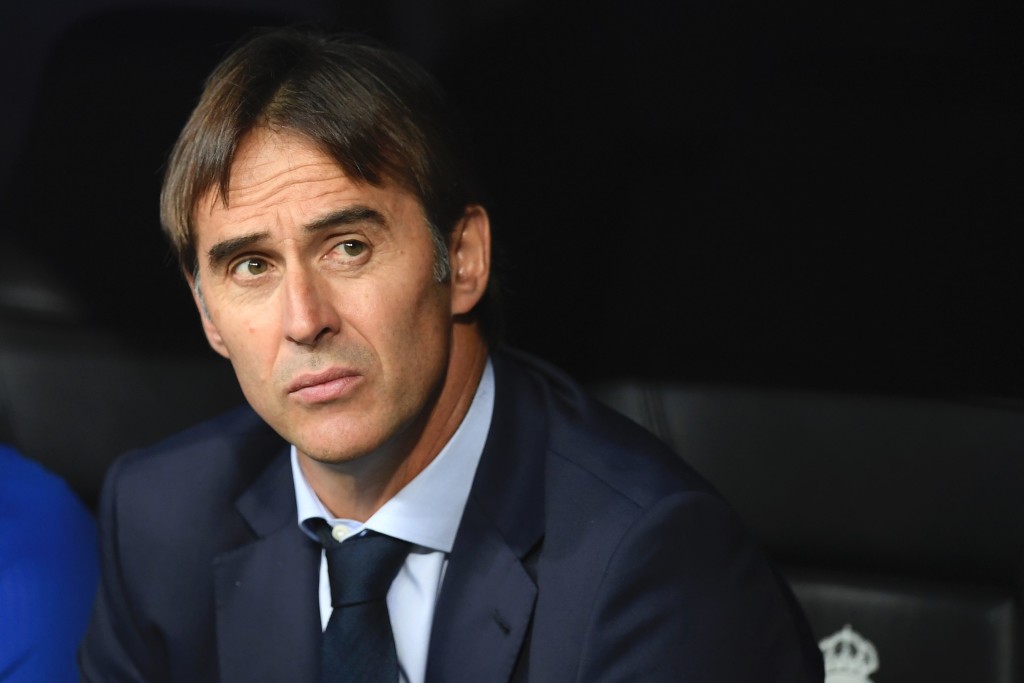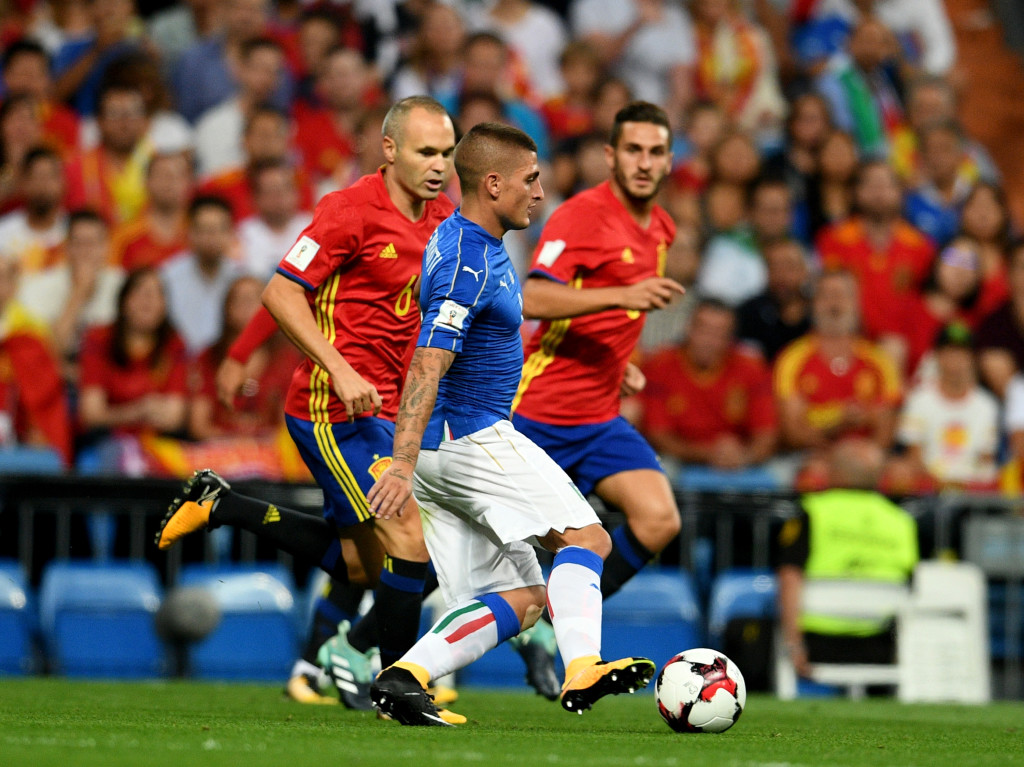
Isco scored twice as Spain beat Italy 3-0 at the Bernabeu to move clear at the top of World Cup qualifying Group G.
The Real Madrid midfielder clipped in a free-kick after 13 minutes before doubling Spain’s lead with a low strike five minutes before half-time.
Although Italy, who had not lost a qualifying tie for a major championships since September 2006, improved for the second half, they lacked a cutting edge in attack.
Chelsea forward Alvaro Morata came off the bench to put the result beyond doubt when he tapped in a cross from captain Sergio Ramos with 13 minutes left.
Here are three things learned from the clash…
A year ago, Isco’s career appeared to have stalled. Unable to break into the Real Madrid starting eleven on a regular basis, he was also struggling to make a mark at international level and was not even named in the squad for last summer’s European Championships.
Now, though, he is finally consistently fulfilling his vast potential for both club and country, producing a string of match-winning performances that leave you scratching your head over why it has taken so long for his talent to blossom.
Although his goals will grab the headlines, Isco’s fabulous performance against Italy was summed up even more succinctly with an outrageous piece of skill in the second half when he escaped one challenge, audaciously nutmegged Marco Verratti and released Dani Carvajal for a chance which was well saved by Gigi Buffon.
He is now clearly a key performer for Julen Lopetegui’s La Roja, and on current form arguably the best attacking midfielder in the world – quite a transformation for a player who couldn’t get into any team a few months ago.
10 – Isco against Italy by numbers:
⚽️⚽️goals
2 shots
5 dribbles completed (6)
56 passes completed (59)
Delight. pic.twitter.com/eeR8qLdJ7K— OptaJose (@OptaJose) September 2, 2017
Spain boss Lopetegui is spoilt for choice in midfield, with more gifted ball players at his disposal than he could ever field at the same time.
So it’s understandable that he opted to select as many of them as possible by positioning David Silva in an entirely unaccustomed ‘false nine’ centre forward role, allowing him to drop deep and link up with Sergio Busquets, Andres Iniesta and Koke, while Marco Asensio and Isco darted infield from the flanks.
Although Silva took a while to adapt to his new role, on the whole the system worked to perfection as Lopetegui’s gifted technicians shifted the ball around the pitch with ease, evoking vivid memories of the Spain teams which dominated the world a decade ago.
Chasing shadows also left Italy’s defenders tired and frustrated by the time Alvaro Morata was introduced as a more conventional striker for the final stages, allowing the Chelsea man to easily pick holes in the visiting back line and score the third goal of the night.
And now the same formula – false nine for the first 70 minutes, striker for the last 20 – may well become Lopetegui’s go-to approach.

Spain’s coach Julen Lopetegui
This performance made it clear that Italy are still coming to terms with the departure of influential former coach Antonio Conte, leaving open questions about exactly what kind of team they want to be.
With experienced manager Gian Piero Ventura lining up his players in a 4-4-2 formation, they were heavily outnumbered in midfield and an early sign of the difficulties they encountered in keeping Spain at bay came after three minutes, when Marco Verratti was booked for a late challenge.
In fairness, during some phases of the match Italy more than held their own and the game could have been very different if Andrea Belotti had levelled – as he perhaps should – rather than heading straight at David De Gea midway through the opening period.
But Italy finished the game well beaten and shapeless, caught between their old counter-attacking instincts and a desire to become a more ball-playing side but consequently doing neither particularly well.
They should still qualify through the play-offs, but a clearer sense of identity will be required if they want to mount a major challenge in Russia next summer.

Verratti is chased down Iniesta